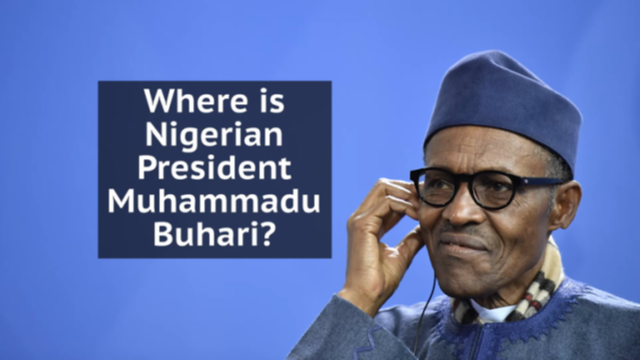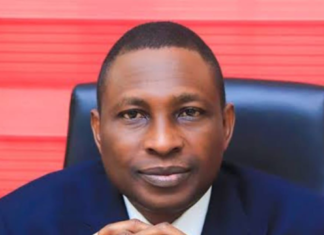Two years into the administration of President Muhammadu Buhari, General Editor, EMEKA ALEX DURU, assesses the extent it has gone in meeting the yearnings of Nigerians.
A joke in the social media, earlier in the year, somehow, summed up the disposition of many Nigerians to the Muhammadu Buhari administration, two years after its inauguration.
In it, a certain admirer of the President had run into his fellow enthusiasts, who went into wild celebration the moment he aroused them in their trademark “Sai Baba”, greeting pattern.
Six months later when he passed the route, the tempo of the ululation when he saluted his colleagues, had gone down tremendously.
After a year into the administration when he encountered members of his clique and tried to engage them in their hitherto mode of greeting, he narrowly escaped being lynched by the thoroughly disenchanted mob.
Two years into the Buhari presidency, it is doubtful if these feelings of despondency and alienation have changed among admirers of the administration. If anything, the rank of Buhari’s critics, seems to be swelling, no thanks to the ravaging economic climate in the land and the obvious inability of the political leadership to put its acts together.
Hope betrayed?
While running for the office in 2015, the President and his All Progressives Congress (APC), had assured Nigerians of a better future. Anchoring his campaign on the platform of “Change”, he had pledged tackling corruption, battling insecurity and enhancing the standard of living for Nigerians.
In complimenting Buhari’s programme, his party, had presented Nigerians an enchanting blue print of governance which it christened roadmap to fix Nigeria.
In what it presented as a 10-point agenda for a new Nigeria, the party listed areas it would focus on to make life meaningful if elected to power.
Highlights of the presentation included job creation; anti-corruption crusade; free, relevant quality education; agriculture; housing plan; and healthcare plan for children and adults.
APC also listed social welfare scheme for the less advantaged as well as road, power plant construction, among its priorities, adding that it would strengthen peace, security and foreign policy.
Of course, given the President’s exciting public perception profile which he had earned especially among the youth and the downtrodden since his first coming as military head of state in 1984, Buhari had imbued the APC roadmap with a high degree of credibility.
The President built on the roadmap and gave PDP a push that resulted in its exit from Aso Rock Government House.
At his inauguration on May 29, 2015, Buhari assured Nigerians that their confidence on him was not misplaced. “Nigerians will not regret that they have entrusted national responsibility to us. We must not succumb to hopelessness and defeatism. We can fix our problems”, he enthused.
He sealed his speech with an exciting pledge that he belonged to all and to none in particular. That particular commitment threw Nigerians at home and abroad into wild jubilation.
But two years after, opinions are divided on whether the voters made the right choice in lining behind Buhari and his party.
Nigerians judge Buhari
While officials of the administration and its supporters, had initially scored it high, critics had dismissed it as a misplaced hope. Over time however, the Buhari men are beginning to alter their assessment of the government, arguing rather that two years in office, would not be enough to pass a performance judgement on the President and his team.
Special Adviser on Media and Publicity to the President, Femi Adesina, in league with the Senior Special Assistant on Media and Publicity, Garba Shehu and Senior Special Assistant on Media and Publicity, Office of the Vice President, Laolu Akande, while giving a mid-term report of the government said it was unfair to judge Buhari when he still has two more years in office.
“You cannot write the report card of this administration in two years. The mandate is four years and it is too early in the day. You don’t reach definite term in the mid-term.
“We will have a lot more to fulfill. If anybody tells you APC has failed, tell them it’s too early in the day, we still have two years, it’s a four year term”, they had argued.
Central Bank of Nigeria (CBN) Governor, Godwin Emefiele, spoke in similar positive note when he stressed that on account of certain policy initiative by the government, Nigeria would soon climb out the recession that has held it down considerably.
The CBN Governor who spoke in Abuja, had remarked, “We’ve seen positive signs in various economic sectors, I am very confident that at the end of the third quarter, we will be out of this (recession), and I still hold that position”.
Finance Minister, Femi Adeosun, had spoken in similar direction, earlier.
But even with efforts by the officials of the administration to sell the impression of things taking good shape in the days ahead, business and economic outlooks still look gloomy. With rising cost of living and bludgeoning employment market arising from closure of offices and factories, Nigerians are hardly convinced that things are looking better.
Erstwhile employee of a second generation bank who was affected in a recent job cuts in the institution told our reporter that he regretted voting for Buhari and APC in the 2015 general elections. “They promised us better living condition. They sounded as if they had any agenda and we fell for their pranks. But it has become clear that they do not even have any plan on how to govern the country. Now, I am out of work and they are telling me that things are looking better. I regret voting for Buhari and his team”, he lamented.
Foremost constitutional lawyer and Senior Advocate of Nigeria (SAN), Professor Ben Nwabueze, is not totally surprised that the country is in its current dark curve. He had, earlier in the life of the administration, observed that the President lacked the intellectual and patriotic credentials needed for the office.
In a recent assessment of the administration, Nwabueze had remarked, “All I can say is that what we are passing through is the worst, politically, economically and otherwise that this country has ever had. But we are hoping that things will change for the better”.
Situating the change mantra
Aside the economic sector where the government is still in the darks on the right strategy and approach to get things working, it is trying its hands in other fields.
Anti-corruption crusade
This is a particular programme of the government that has won it applauds abroad and at home, as well as controversies. With the Economic and Financial Crimes Commission (EFCC), reining in politicians suspected to have engaged in underhand activities in the last dispensation, opinions have been high on the agenda of the administration in curbing corruption.
There are however insinuations that the fight has been waged essentially against people in the opposition PDP. There are also allegations of the fight being waged in ways that ran against rule of law. Some of the looted funds said to have been discovered by EFCC, are also being contested by Nigerians on grounds that the Commission has not linked them to any persons or groups. Many thus, dismiss such claims of discoveries as mere publicity stunts by commission.
Challenge of insecurity
Before the inauguration of Buhari administration, the nation had been at the receiving end of Boko Haram insurgency. While it embarked on its murderous onslaughts, Boko Haram severally launched a massive assault on the country’s corporate existence.
But with the coming of Buhari and the determination of the administration to engage the terrorists squarely, much gains have been recorded.
However, while the menace of Boko Haram has been scaled down considerably, the country is confronted with the scourge of Fulani herdsmen that is making life miserable for Nigerians in the southern and middle belt zones.
In its rampage, the group had unleashed terror in communities in Benue State, Ondo and Enugu among others.
The most atrocious exercise by the herdsmen, appeared to be their attack on Ukpabi-Nimbo community in Enugu State in April, last year.
The invasion which took place in the early morning of Monday, April 25, 2016, was estimated to have left over 50 indigenes dead and more injured.
Critics have on the basis of these perceived failings, accused the government of not living up to expectation. Others however insist that the administration is on course in delivering its pre-election promises, given the volume of resources at its disposal.
- Advertisement -
- Advertisement -












